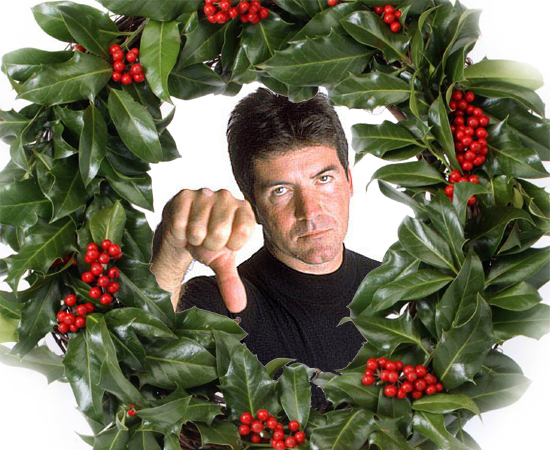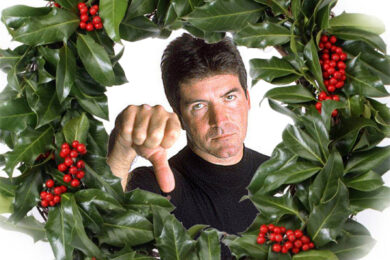What happened to pop? What’s become of it? Its story in the 2000s was, on the one hand, the story of its tedious ubiquity, but also, in another sense, its disappearance. In the 1980s, Paul Morley was an arch-theorist of a meta-notion of Pop. He expressed it baitingly and facetiously (annoying heavy metal fans by talking about "hard" groups like Depeche Mode or declaring Tight Fit to be superior to Led Zeppelin 3), but also with a riotous eloquence in the case of ABC, bestowing upon them a magnificent surplus of significance which for many became a dimension of the music itself, not just a critique of it.
Such were the times. 1982 was one of the supreme and exemplary years in which pop was where it was, with the more intelligent and entryist of the punk/post-punk generation having followed a transition from monochrome to colour. It was the year not just of ABC but The Associates, Kid Creole, Simple Minds, Scritti, Heaven 17, The Human League, Soft Cell, New Order and many others, all of whom were engaging in a sort of trade-off in the marketplace of the hit parade. It was also the era of Joe Dolce, St Winifred’s School Choir, Tight Fit, Lena Martell, but that was all right. These were corollaries, as opposed to contradictions of the idea that these were great pop times. They confirmed, as much as did a Billy Mackenzie, the bewildered, laissez-faire attitude of pop’s commercial gatekeepers. The sublime and the ridiculous, "our" favourites as well as Grandma’s, all got through, much as The Stones, Beatles and Hendrix had jostled alongside Ken Dodd, Des O’ Connor and Pinky & Perky a generation earlier.
Despite the diminishing echo of popular culture’s Big Bangs (punk, hippiedom), the same deal held into the 80s and 90s, although there was gradually less great and less grot. Fewer Radioheads, fewer Mr Blobbies. Come the 21st century, however, and the mainstream began to congeal into a certain beige perma-blandness, neither soulful or soulless, semi-tasteful, efficient pop fare made by capable, acceptable sorts, a music rich in everything but inspiration. Some random samples of those occupying the charts throughout the decade give a sense of the encroaching flavourlessness. So, in December 2002, we have Blue & Elton John, Robbie Williams, Gareth Gates, Eminem, Las Ketchup, S Club 7, Pink, The Cheeky Girls, Daniel Bedingfield and Atomic Kitten. In December 2004, it’s a revived Band Aid version of ‘Do They Know It’s Christmas’, Natasha Bedingfield, Ice Cube, Nelly and Christina Aguilera, Green Day, Destiny’s Child, Girls Aloud, U2. The winter of 2006, meanwhile, yielded Take That, Nelly Furtado, Gwen Stefani, Jamelia, U2/Green Day, Justin Timberlake and Emma Bunton.
Now, there are arguably one, maybe two sublimes in there – Eminem most certainly had his moments – as well as one ridiculous in the form of The Cheeky Girls. However, overall there is the sense of carefully honed and varnished acts produced by a sophisticated machine manned and womanned by people who know their pop heritage, and doubtless in their private lives are passionate about their Marvin Gaye and Bob Marley. This was the decade in which the science of marketing, of calculated and tasteful risk aversion overtook the wayward, flamboyant, the decadent, the inspired, the stupid, the romantically super-intense – a creeping, corporatisation of things which has affected all aspects of the modern political and media environment, not just pop.
It’s a sealed world, the Noughties chartworld, the Noughties mainstream. You can’t just walk in off the streets into it any more. You can’t tunnel up from the underworld – as Frank Zappa pointed out towards the end of his life, the hipper the people in the corporate division are, the less chance there is of anything hip getting through. No one gets in, no one gets out. Look again at the Noughties chart litany and you’re struck by a feeling that all of those names, like the poor, will always be with us. Even the Cheeky Girls are hanging in there, somewhere. Sure, there need to be new names but in an era of great and narrower control from fewer and more penthouse-detached operators, these increasingly mean stage school and Simon Cowell.
And so, when Paul Morley came to celebrate pop in the Noughties in Words And Music, you sensed he was forced to cast around for a pop with that certain, je ne sais quoi surplus value that was so abundant in the 80s and found himself clutching, as if at a single straw, at Kylie’s ‘Can’t Get You Out Of My Head’. As for rock, the last time anything formally experimental permeated the mainstream was probably My Bloody Valentine in 1991 with the Tremolo EP. Since then, "indie" bands, or unkempt replications thereof, have piled at various times into the charts but these fiercely orthodox The Knack and Jam impersonators, the sort who generally guested on Al Murray’s Happy Hour, are to evolutionary rock what The Lighthouse Family are to soul (a genre which has ceased to exist, except in the form of its own signifiers, but maybe that’s another piece).
De-souled, de-rocked, de-popped, the "mainstream" is arid and bereft, all life ossified, dried out by overweening corporate intervention. Already giant record companies have merged into conglomerates like Universal. People point to this bare ocean bed and say that there is "nothing happening". However, that emptiness is a bit like the place where the Red Sea has parted – for to either side, marginalised and kept from the centre by invisible forcefields, is a teeming, tsunami-high, oceanic abundance of activity in every genre, every permutation, every possibility of cross-fertilisation. It’s more than the market can bear, in every sense of the phrase. The drift has been away from the centre, no Big Thing but countless little things, exiled from the possibility of iconic success but no less worth attending to for that. The entryism of the past, the complex negotiations between integrity and commercial success, are all history. Things are more simplistic now. It’s all happening out there, down here. From Sunn O))) to Villalobos, Position Normal to The Focus Group, Peter Van Hoesen to Sweet Billy Pilgrim, The Invisible to The Caretaker, Burial to Animal Collective; those are just a few names off the top of my own head. As David Thomas nervously suggested 30 years ago on Pere Ubu’s ‘New Picnic Time’, "these are the best times of all." And chances are, as things continue to get worse for the industry, they’ll get still better in the decade to come.



